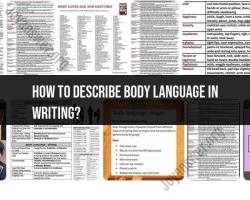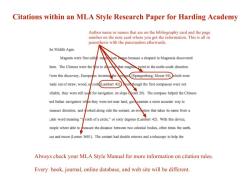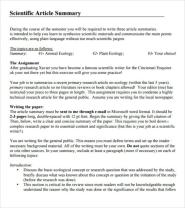How to write straightforward sentences?
Writing straightforward sentences is essential for clear and effective communication. Here are some tips to help you write sentences that are easy to understand:
Start with a Clear Subject:
- Begin your sentence with a clear and specific subject. The subject is typically the who or what the sentence is about. This helps readers know the main focus of the sentence right away.
Use Simple Sentence Structure:
- In many cases, a simple subject-verb-object structure works well. This means that you have a subject, a verb (action), and an object (what the action is affecting). For example, "She reads books."
Avoid Run-On Sentences:
- Run-on sentences occur when multiple ideas are strung together without appropriate punctuation. Use periods, commas, semicolons, or conjunctions to separate ideas into clear, distinct sentences.
Break Long Sentences:
- If a sentence becomes too long and complicated, consider breaking it into two or more shorter sentences. Shorter sentences are often easier to follow.
Be Concise:
- Use as few words as necessary to convey your message. Eliminate unnecessary words, phrases, or redundancies that don't add value to the sentence.
Use Active Voice:
- Write in the active voice, where the subject performs the action. This makes sentences more direct and clearer than passive voice constructions. For example, "She wrote the report" (active) is clearer than "The report was written by her" (passive).
Avoid Ambiguity:
- Be precise in your language to avoid ambiguity. Ensure that your sentences have a single, clear interpretation. If a sentence can be misunderstood in more than one way, revise it.
Choose Strong Verbs:
- Use strong and specific verbs that convey the action accurately. Strong verbs reduce the need for excessive adverbs and adjectives to modify weak verbs.
Use Transitional Phrases:
- Transitional words and phrases (e.g., "however," "therefore," "in addition") can help connect sentences and clarify relationships between ideas within a text.
Proofread and Revise:
- After writing, take the time to proofread and revise your work. Check for errors in grammar, punctuation, and clarity. Reading your writing aloud can also help identify awkward or unclear sentences.
Consider Your Audience:
- Think about who will be reading your writing. Tailor your sentences to the comprehension level and familiarity of your audience with the subject matter.
Seek Feedback:
- If possible, ask someone else to read your writing and provide feedback. Fresh eyes can often identify areas where clarity can be improved.
Practice Writing:
- Like any skill, writing straightforward sentences improves with practice. Regular writing and editing can help you develop this skill over time.
Remember that while straightforward sentences are important for clarity, variation in sentence structure and length can make your writing more engaging. Striking a balance between simplicity and complexity is key to effective writing, depending on the context and purpose of your writing.












